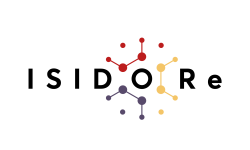Material provided: Report (with Executive Summary)
Unit definition: 3 person months
Provider Country: Senegal – Centre Régional de Recherche et de Formation aux maladies infectieuses (CRCF)
Thailand – MORU/Mahidol University
Short Description: Socio-anthropological assessment based on enquiries with national and local authorities, communities, teams and participants in the project
CRCF is a non-profit research center founded 17 years ago by including the ministry of Health, Dakar Cheikh Anta Diop University, the National AIDS Committee from Senegal and partners from Senegal and France (including Institut de Recherche pour le Développement, ANRS/MIE French agency for research on HIV and Emerging infectious diseases). Operational research and basic research are developed in the field of public health and social sciences, focused on infectious diseases. Members of CRCF team have longstanding experience in social science research, rapid assessments and evaluation, participative research with vulnerable populations, and an experience in research ethics committees.
MORU/Mahidol University MORU (The Mahidol Oxford Tropical Medicine Research Unit) hosts the Thailand Wellcome Africa and Asia Programme and leads targeted clinical and public health research to discover and develop appropriate, practical, affordable interventions that measurably improve the health of people living in resource-limited parts of the world. Its research activities focus on wide-ranging topics: malaria, mother and child health, microbiology & non-malaria infections, critical illness, medicine quality, statistics data & modelling, and bioethics and engagement.
The service aims to provide program leaders and teams an assessment of the social effects of the program after its completion through perceptions by communities and stakeholders at the field level. This assessment will help leaders understand:
The assessment will be based on the principles of medical ethics, public health ethics, research ethics and of community engagement. The service will be available for West and Central Africa French-speaking countries.
The methodology will include (this may be adapted depending on the program):
The team will be coordinated by a senior investigator (MD with a PhD in anthropology, Pharmacist specialised in Public health, or equivalent).
A 30-50 pages report including a 2 page-executive summary.
 The ISIDORe project has received funding from the EU Horizon Europe research and innovation programme under grant agreement No. 101046133.
The ISIDORe project has received funding from the EU Horizon Europe research and innovation programme under grant agreement No. 101046133.